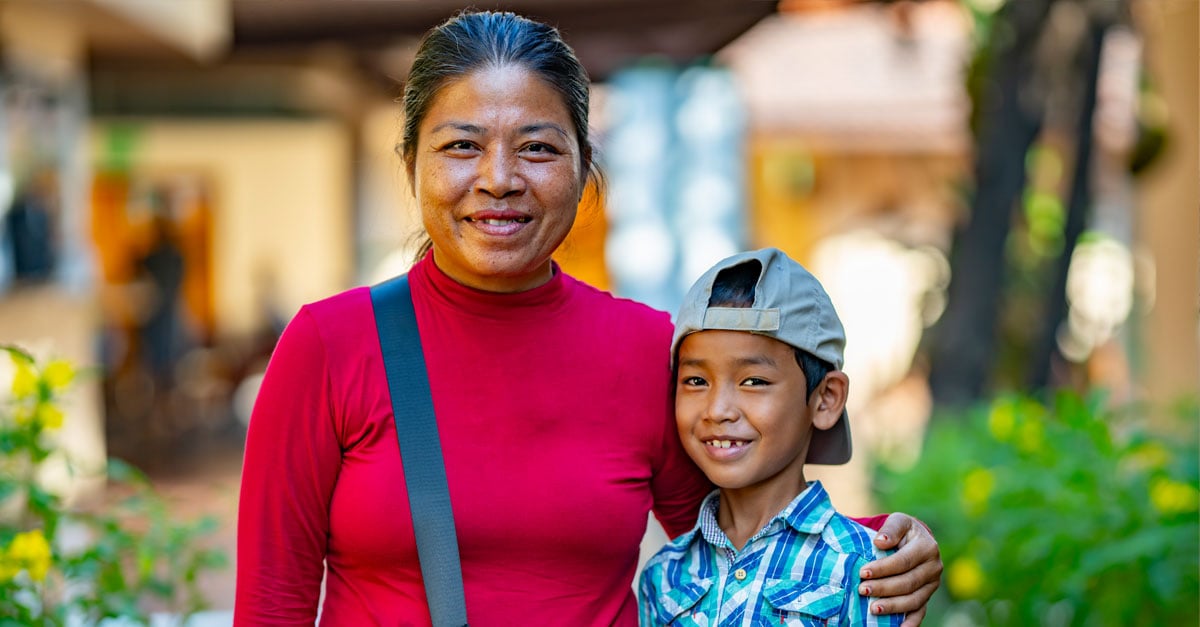The WFH has supported the inherited bleeding disorders community in Cambodia through different programs—all of which have as their goal making sustainable care in the country a reality. While there is still a long way to go, the infrastructure is now strong enough that the WFH can provide support through the WFH Humanitarian Aid Program via donated treatment products and training. The WFH is also present through the WFH International External Quality Assessment Scheme (IEQAS), which is designed to improve and standardizes laboratory diagnosis by auditing the effectiveness of a laboratory’s internal quality assurance systems to determine competence levels.
One notable example of change brought about by the WFH is through the work of Sing Heng, MD, a pediatric hematologist at Angkor Children’s Hospital. Heng—who participated in the International Hemophilia Training Centre (IHTC) Fellowship Program—has since played a pivotal role in improving treatment options in Cambodia. His training with the WFH empowered him to develop a local team of specialists and offer comprehensive care to people with bleeding disorders (PWBDs). Today, thanks to these improvements and donations—made possible by WFH Humanitarian Aid Program sponsors—patients can receive home-based prophylactic treatment, which is helping to drastically improve their quality of life.
We have had a chance to provide the prophylaxis program because of donations from the WFH Humanitarian Aid Program. And our patients, they are [now]… strong enough. This is the result from the [support of the] WFH.
—Sing Heng, MD, pediatric hematologist, Angkor Children’s Hospital
Collaboration between the WFH and corporate sponsors is essential to the success of the WFH Humanitarian Aid Program. By working together towards a shared vision of Treatment for All, they are making comprehensive care more and more attainable in the country. Their combined efforts cover many key areas, such as training medical professionals, supporting surgical procedures, and developing future leaders in hemophilia care. “When we started discussing with the WFH, we saw that we shared the same objectives and priorities,” says one corporate sponsor representative. “With better treatment, better access, better focus on managing the disease… we can really bring to patients a hemophilia-free life and mind.”
To watch the video on the work being done in Cambodia today, click here. To read the first article and video in this series, “WFH leverages collaboration in Cambodia to support community”, click here. To read the second article and video, “WFH collaboration supports Cambodian bleeding disorders community”, click here.
The WFH Humanitarian Aid Program has donated nearly 18 million IUs of factor and over 329,000 mg of non-factor replacement therapy to Cambodia since 2015. Over 3.3 million IUs of factor, and nearly 109,000 mg of non-factor replacement therapy were donated in 2023. To find out more about the WFH Humanitarian Aid Program, please click here.
About the WFH Humanitarian Aid Program
The WFH Humanitarian Aid Program improves the lack of access to care and treatment by providing much-needed support for people with inherited bleeding disorders in developing countries. By providing patients with a more predictable and sustainable flow of humanitarian aid donations, the WFH Humanitarian Aid Program makes it possible for patients to receive consistent and reliable access to treatment and care. None of this would be possible without the generous support of Sanofi and Sobi, our Founding Visionary Contributors; Bayer, CSL Behring and Roche, our Visionary Contributors; Grifols, our Leadership Contributor; and Takeda and Japan Blood Products Organization, our Contributors. To learn more about the WFH Humanitarian Aid Program, visit www.treatmentforall.org.













